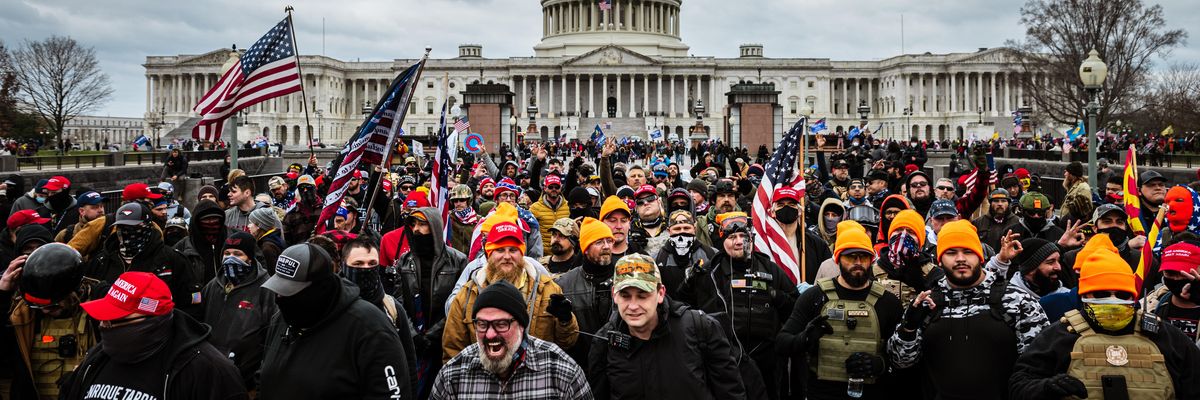This Saturday marks three years since an armed mob stormed the Capitol to prevent the peaceful transfer of power. We now know this was not just a crazed crowd egged on by a defeated candidate, but a part of an earnest if ham-fisted plot to overthrow American democracy.
How has our country responded? Reform often follows scandal — but not always. When National Guard troops still were bivouacking under the dome, Sen. Mitch McConnell (R-KY) called Donald Trump “practically and morally responsible” for the insurrection. The bipartisan January 6 congressional committee did extraordinary work to expose the facts. But Trump’s grip over his party has only strengthened. He now describes January 6 as a “beautiful day” and calls the criminals who participated in the attack “hostages.” Republicans chose the legal architect of the election denier movement to be speaker of the House.
So this upcoming election year requires us not only to ensure free and fair elections but to guarantee nothing like January 6 can happen again.
That demands legal accountability, of course. Fitfully that has started to happen, with the former president finally facing federal and state charges. We must strengthen guardrails, too. In 2022, Congress enacted a worthwhile update of the creaky Electoral Count Act, but there is much more to do. And we must confidently advance a compelling plan for how to fortify American democracy.
There’s much, much more to be done to protect and strengthen our democracy in 2024.
On this page here, you’ll find links to some of the Brennan Center’s most important work identifying the biggest threats to a safe and secure election, followed by clear-eyed and specific proposals to avert them. We offer guidance to state legislators, prosecutors, and members of Congress, who all have a major role to play in confronting election denial and election sabotage.
It’s not enough to “wave the bloody shirt,” as was said after the Civil War. In 2020, we didn’t see January 6 coming. Now if election deniers succeed in destroying the world’s oldest democracy, we will have nobody to blame but ourselves.




